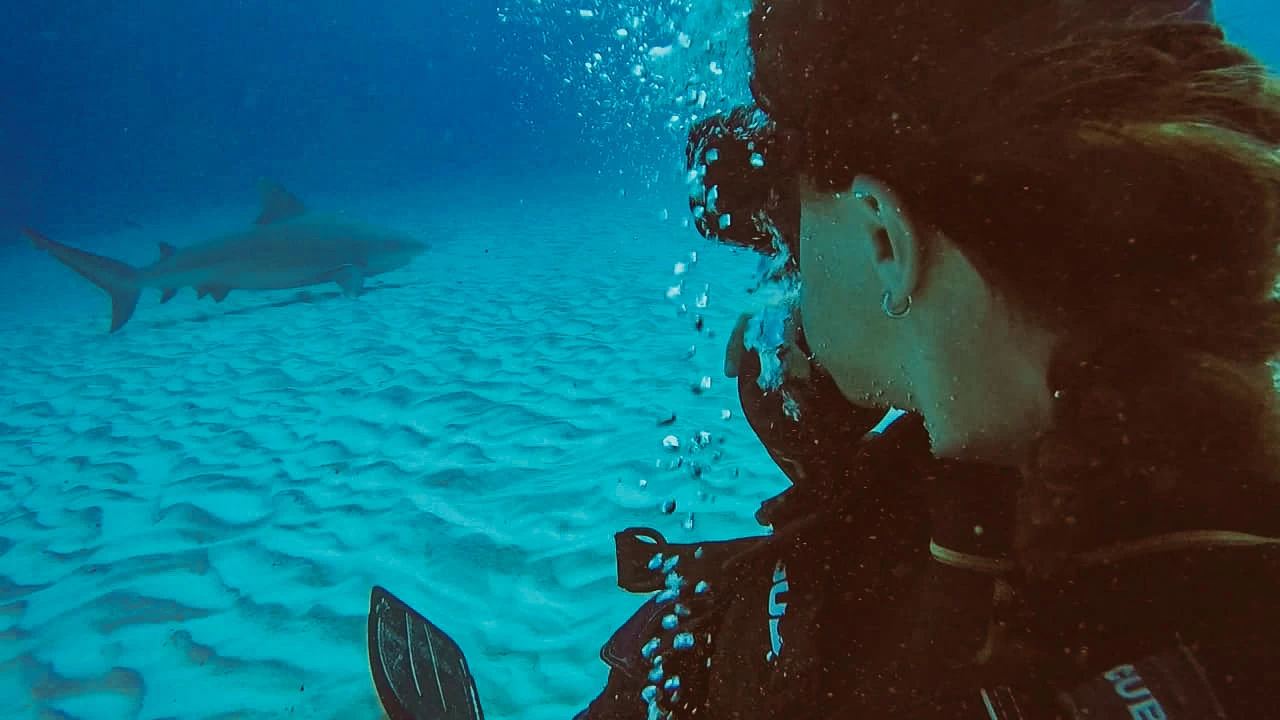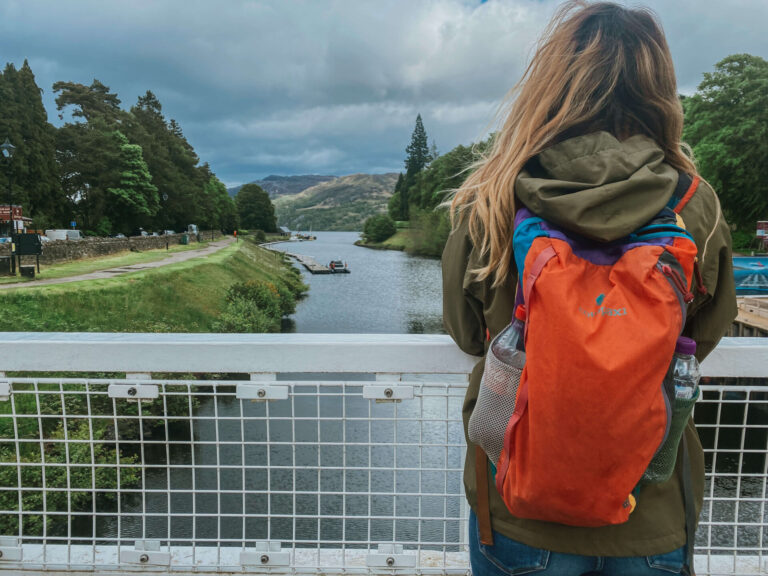Complete Guide to Diving with Bull Sharks in Playa del Carmen
After visiting 50+ countries and trying some of the world’s most thrilling adventures, diving with bull sharks in Playa del Carmen ranks as one of my most memorable underwater experiences. And honestly? It’s way less terrifying than you might think.
Here’s everything you need to know about bull shark diving in Mexico’s Riviera Maya, specifically in Playa del Carmen, although I’m sure it will be a helpful guide regardless of where you dive with bull sharks in the world.
Why Bull Shark Diving in Playa del Carmen?
Let me be real with you: when I first heard about diving with bull sharks without a cage, it sounded absolutely terrifying. But here’s the thing: Playa del Carmen is one of the best places in the world to safely encounter these incredible creatures.
From November to March, pregnant female bull sharks migrate to the warm, shallow waters off Playa del Carmen to give birth. This creates a unique window where you can observe these powerful animals in their natural habitat, and they’re surprisingly calm.
What makes this destination special:
- Shallow depths (20-30 meters/65-100 feet)
- Excellent visibility (often 20+ meters)
- Warm Caribbean water (no thick wetsuit needed)
- Professional dive operations with established safety records
Bull Shark Diving Season: When to Go
Best time: November through March
This is when the pregnant females come close to shore. Peak season is typically December through February, when you’ll have the highest chance of encountering multiple sharks.
I visited in late January, and the conditions were perfect. We had clear water, several sharks, and water temperatures around 77°F (25°C).
Pro tip: Book early if you’re visiting during peak season, especially around the holidays. These dives fill up fast.
Requirements for Bull Shark Diving
Although there are a few companies that have less strict requirements, many operators require:
- Advanced Open Water certification
- Recent diving experience (at least 30 logged dives recommended)
- Comfort at depth (the dive typically ranges from 20-30 meters)
- Good buoyancy control (as you’ll be kneeling on the sandy bottom)
Don’t have your Advanced certification yet? Many dive shops in Playa del Carmen offer courses, and you can complete it in 2 days.
Disclaimer: The company I used had more lax requirements (I just had Open Water) but you should also be smart about it. I know that I am a person who doesn’t panic in situations. If you feel that you might get scared and freak out when you come face-to-face with a shark, DON’T do the dive!! Let’s have common sense, yes?
How Much Does Bull Shark Diving Cost?
Average cost: $120-180 USD per dive
This typically includes:
- Two tank dive (bull sharks + reef dive)
- All equipment rental
- Professional dive guide
- Boat transportation
- Sometimes light snacks/drinks
Yes, it’s pricier than a regular fun dive, but this is a specialized experience with extra safety protocols.
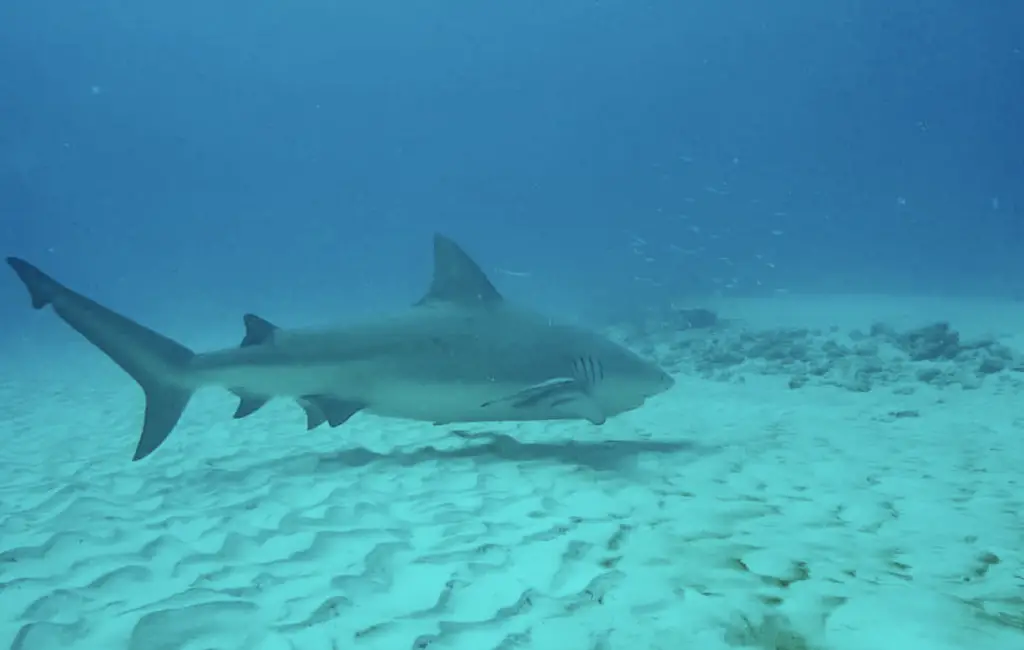
The Ethical Debate: Should You Dive with Bull Sharks?
I’m going to be honest about this because it matters.
The feeding controversy: Some operators feed sharks to guarantee sightings. This alters natural behavior, creates dependency, and can increase aggression. I specifically chose an operator with a no-feeding policy.
Responsible tourism means:
- Supporting operators with ethical practices
- Never touching or harassing wildlife
- Following all environmental guidelines
- Respecting the sharks’ space
- Not supporting operations that prioritize entertainment over animal welfare
- If everyone demands ethical experiences, the industry will adapt.
Choosing an Ethical Dive Operator in Playa del Carmen
Not all bull shark diving operations are created equal, and this matters.
What to look for:
- Operators who DON’T feed the sharks (feeding alters natural behavior)
- Small group sizes (6-8 divers max)
- Experienced dive masters who know shark behavior
- Clear safety briefings
- Proper insurance coverage
Operators worth considering:
- Phantom Divers – Known for their no-feeding policy
- Scuba Playa – Excellent safety record and experienced guides
- Dive Mike – Small groups, knowledgeable staff
Personally, I used Dressel Divers, who specifically don’t feed the sharks. You might see fewer sharks this way, but it’s the ethical choice. The sharks come because they’re curious, not because they’re expecting a handout.
What to Expect on Your Bull Shark Dive
The Pre-Dive Briefing
Your dive guide will explain:
- How to position yourself on the bottom
- What to do if a shark approaches
- Hand signals specific to this dive
- Emergency procedures
Key rules:
- Stay calm and control your breathing
- Minimize unnecessary movement
- Never reach out toward the sharks
- Maintain neutral buoyancy
- Keep your arms close to your body
- Follow your guide’s signals immediately
The Descent
You’ll do a normal controlled descent, usually down a line. You need to stick with the group and just go straight down to the bottom.
The Encounter
Once you reach the bottom (around 25 meters during my dive), you’ll kneel in the sand and wait. Your dive guide will position the group so everyone has good visibility.
What happens:
- Sharks may approach to investigate
- They’ll circle at a distance first
- Some may come surprisingly close (2-3 meters)
- They’re assessing you. They’re thinking, “What is this thing?!?”
- After a few passes, they usually get bored and move on.
- Your guide will then direct the group to swim a few meters, then drop down onto the sand again.
- This causes the sharks to come back because they’re thinking, “Wait, it just moved! What was that??”
- After a few passes around you, they will get bored again and swim off.
You’ll spend about 20-25 minutes on the bottom, depending on your air consumption. The whole dive typically lasts 40-45 minutes.
Usually, after the shark dive the operator will take you to a coral reef to do some more diving, where you can explore a bit more.
My Experience
Now, I’m not going to lie. Seeing a 2.5-meter bull shark glide past you is pretty intense.
At one point the dive guide starting pointing behind me, making a motion not to move. I was holding my breath as the shark came from right behind me, which is how we got these awesome pictures!
It was scary, but also amazing. I’d love to do it again.
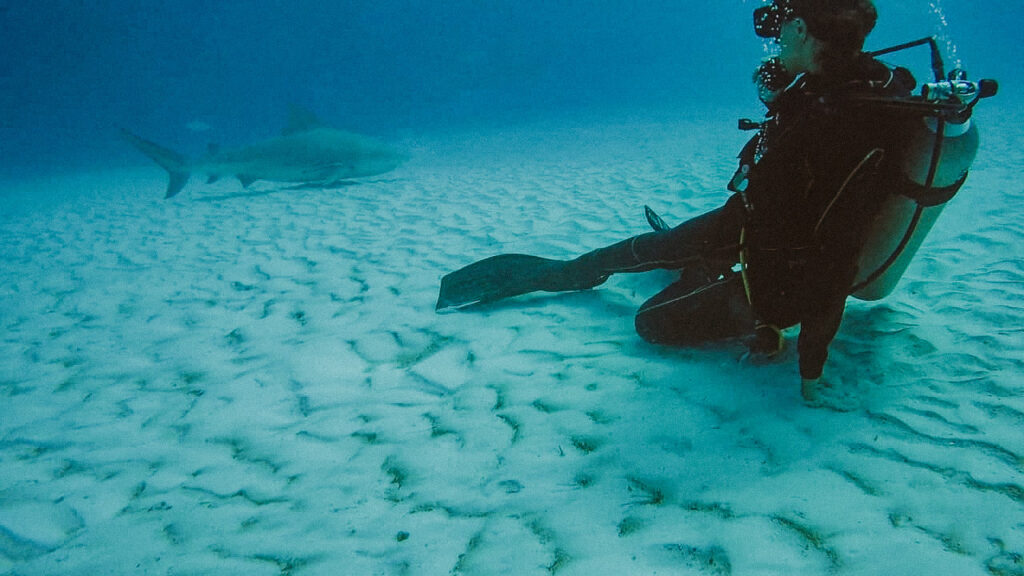
Safety Information
Let’s address this directly: Yes, bull sharks have a reputation. They’re one of the three species most commonly involved in attacks on humans. But attacks are extremely rare, and incidents during organized dives with professional operators are virtually unheard of.
Why this dive is considered safe:
- The sharks aren’t hunting (they come to rest and give birth)
- You’re with experienced guides who read shark behavior
- You’re in a group (sharks are naturally cautious of groups)
- The dive follows strict protocols
- These specific sharks are accustomed to seeing divers
Stay safe by:
- Following your guide’s instructions exactly
- Never diving with unreliable operators
- Being honest about your experience level
- Staying calm if a shark approaches
- Keeping your movements slow and controlled
What to Bring
- Valid dive certification card
- Dive logbook
- Underwater camera (GoPro or similar—you’ll want footage)
- Reef-safe sunscreen
- Seasickness medication (if you’re prone)
- Cash for tips
- An open mind
Camera tip: I used a GoPro with a red filter for better color correction at depth. The footage turned out great.
After Your Dive: What to Do in Playa del Carmen
Once your adrenaline comes down, Playa del Carmen has plenty to keep you busy.
Cenote Diving
The Yucatan is famous for its cenotes (freshwater sinkholes). After diving with bull sharks, exploring an underwater cave system makes for an interesting contrast.
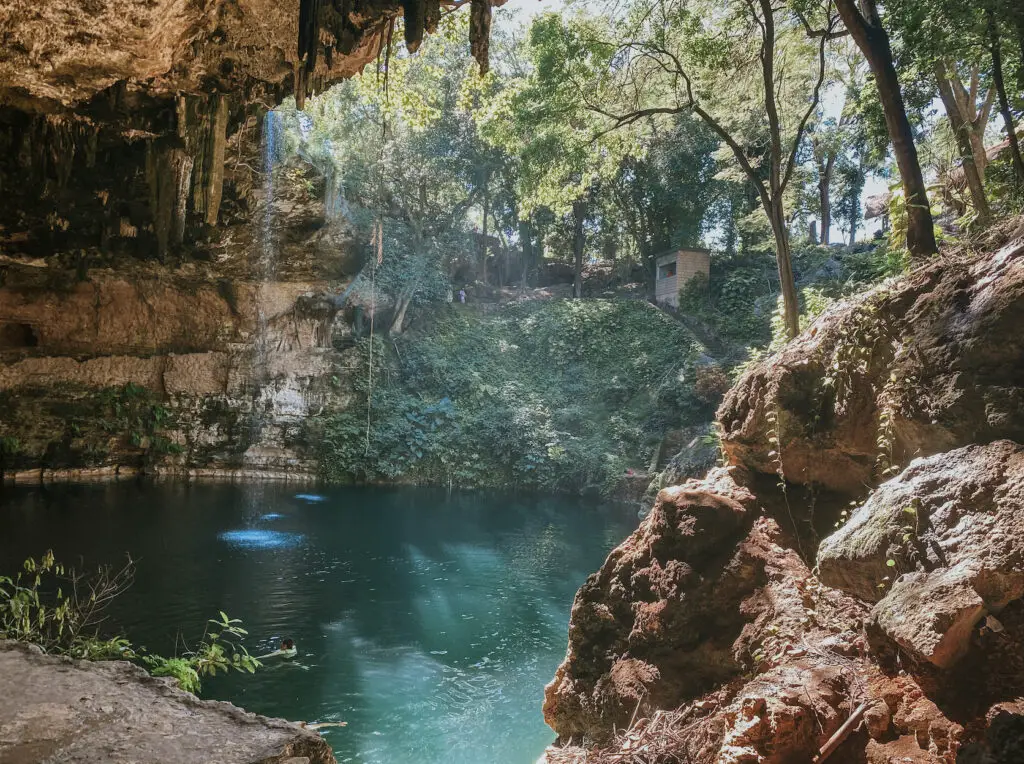
Explore 5th Avenue
Playa’s main drag is good for fresh ceviche, beachfront bars, souvenir shopping, and people watching.
Visit Tulum
Only 45 minutes south, the Mayan ruins at Tulum are worth the trip. Pro tip: Go early (8 AM) to beat the crowds and heat.
Relax on the Beach
Sometimes after an intense dive, you just need to decompress. Playa del Carmen has nice beaches—grab a spot, order a michelada, and replay your shark encounter in your head.
There’s so much to do in the area, so be sure to check out this itinerary for the Yucatan Peninsula.
Other Diving Options in the Area

If you’re spending several days in Playa del Carmen, consider:
- Cozumel: World-class drift diving on spectacular reefs (30-minute ferry ride)
- Banco Chinchorro: Remote atoll with pristine diving (full-day trip)
- Wreck dives: Several intentionally sunk vessels create artificial reefs
- Night dives: Completely different underwater world after dark
Frequently Asked Questions
Is Bull Shark Diving Worth It?
Short answer: Yes.
Ok but in my honest opinion, it’s a really cool experience. HOWEVER, it is not like a normal dive. You get to the ocean floor, pick a spot, and sit there. It isn’t like the usual dives where you can go off exploring. It’s something that you should do once to be able to experience it, but isn’t necessarily the world’s most fun dive.
You should do this if:
- You’re a confident diver with appropriate certification
- You want to challenge yourself
- You’re fascinated by sharks and marine life
- You’re visiting during bull shark season
- You’re comfortable spending a bit more for a specialized experience
Skip it if:
- You’re a brand new diver (work your way up first)
- You have a genuine phobia of sharks (no shame—know your limits)
- You’re not prepared for the depth and conditions


